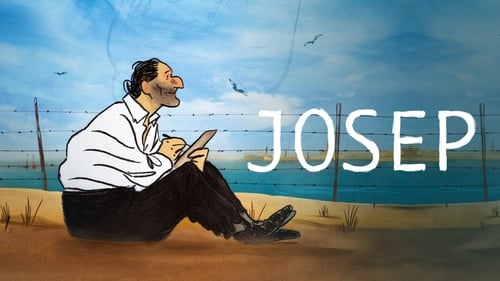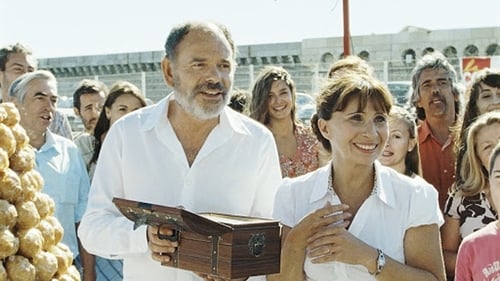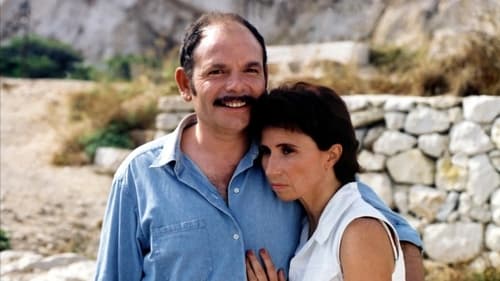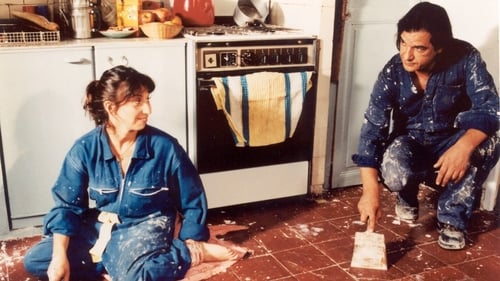
Screenplay
February 1939. Overwhelmed by the flood of Republicans fleeing Franco's dictatorship, the French government's solution consists in confining the Spanish refugees in concentration camps where they have no other choice than to build their own shelters, feed off the horses which have carried them out of their country, and die by the hundred for lack of hygiene and water... In one of these camps, two men, separated by barbwire, will become friends. One is a guard the other is Josep Bartoli (Barcelona 1910 - New York 1995), a cartoonist who fights against the Franco regime.

Screenplay
A union pensioner and his wife are robbed, but find that merely getting the assailants brought to justice is not enough for their consciences.

Director
Jean-Louis Milesi plays a man in his mid-fifties who has become involved with a woman who has a two-year old son, Lino. The man isn't sure who the boy's father is, and given his girlfriend's checkered past, he's not inclined to find out. However, when she dies following an overdose of drugs, the man finds himself looking after the boy, who has started calling him "Papa." In time, the man does some digging and finds a man who seems a good bet to be Lino's biological father, but with no firm proof the family is reluctant to claim the boy, and the man Lino thinks of as his dad becomes an unwilling parent.

Writer
Centers on three childhood friends: Muriel, Francois and Rene. Partners in crime (burglaries, to be precise), the three end their "criminal" activities after one of their attempted burglaries fails. They vow never to see each other again until, however, Muriel's son is kidnapped, which leads the three to join forces again to get the ransom money.

Writer
Ange, the mayor of a distant mountain village in Corsica becoming depopulated has launched a drama workshop supposed to give new life to the region. To this end he is to sign a contract with a cabinet minister for whom the villagers are rehearsing a play. It is the very day of the coming of the minister that Ange chooses to pass away, which infuriates his cantankerous wife Lellè. The contract must be signed anyway but how to go about it, mainly with such a family as Ange's: Rinatu, the nationalist, traditionalist son; Sauveur, the former local policeman turned politician; Marcia, Rinatu's daughter, determined to perform the play at any cost; Ange's two wives, the official one: the bad-tempered Lellè, and the unofficial one, the Indian domestic worker of Indian origin? To say nothing of Pantaleone, the deputy mayor, whose wife has been one of Ange's (numerous) mistresses.

Writer
Marie-Jo and Her Two Lovers (French: Marie-Jo et ses deux amours) is a 2002 French drama film directed by Robert Guédiguian. It was entered into the 2002 Cannes Film Festival.

Screenplay
A dark tale of working-class life in Marseilles, a city in crisis. Interesting characters include a hard-bitten but compassionate fish market worker with a drug addicted daughter and a moody bartender with a shocking secret life.

Writer
Nag, a prostitute, walks the streets. One night, a violent man sends her to the hospital. There she meets Herve, a nurse obsessed with people's age and death in general. He falls madly in love with Nag and enters a world that amounts to very little.

Director
Nag, a prostitute, walks the streets. One night, a violent man sends her to the hospital. There she meets Herve, a nurse obsessed with people's age and death in general. He falls madly in love with Nag and enters a world that amounts to very little.

Writer
From the director of Marius et Jeannette, this story of two working-class families is a fable with an optimist streak. A young black man, Francois, is wrongly accused of rape by a racist policeman. The story is told in voiceover by his childhood friend, neighbor, and the mother of his future child, Clementine, who is white. The city is Marseilles as in the previous film, symbolic with its churches, prisons and ruins. Except in this film, director Robert Guediguian also ventures outside, taking the story to Sarajevo; two different cities, one devastated by war, the other by a bad economy and unemployment. A la Place du coeur won a Special Jury Prize at the 1998 San Sebastian Film Festival and was also shown at the 1998 Toronto Film Festival and the 1998 Montreal Film Festival.

Screenplay
Jeannette is a single mother living in a working-class community in Marseilles; she tries to support herself and her two kids on her salary as a check-out girl at a supermarket and lives in an apartment complex where everyone is thrown into close proximity with everyone else. Marius is working as a security guard at a cement factory that has gone out of business; he's also squatting in the building, since the plant is soon to be demolished and he'll be needing his money later on. One day, Jeannette happens by the factory, and spotting several cans of paint, tries to take two of them home with her. Marius spots her and tries to chase her away, while she rails at him with curses against the capitalist system. The next day, an apologetic Marius appears at her doorstep, cans of paint in hand; the two soon become friendly, and a romance begins to bloom, though it quickly becomes obvious that Jeannette's romance novel fantasies are a bit off the mark from what Marius has in mind.

Screenplay










